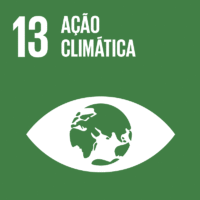Ciência-IUL
Publicações
Descrição Detalhada da Publicação
Ecological Modernization and Beyond
Título Livro
Routledge Handbook of Environmental Policy
Ano (publicação definitiva)
2023
Língua
Inglês
País
Reino Unido
Mais Informação
Web of Science®
Esta publicação não está indexada na Web of Science®
Scopus
Google Scholar
Abstract/Resumo
Ecological modernization is the policy-driven innovation and diffusion of resource efficient clean technologies. It has become an extremely dynamic process – nothing less than a global industrial revolution. Ecological modernization has also been highly effective as far as disruptive technologies such as renewable energy, e-mobility, or certain water-related technologies are concerned; a new area being bio-technical innovations in agriculture and forestry. There are also several economic co-benefits which increase the political feasibility of policies under the ecological modernization paradigm. Its present performance nevertheless needs a differentiated assessment: its environmental improvements so far have been typically selective and mainly restricted to market-based solutions. Often it coexists with the older “dirty” structures (such as the fossil fuel sector) instead of fully replacing or transforming them. There are also problems of equity regarding the attribution of costs or the global distribution of benefits. The strengths and weaknesses of ecological modernization will be exemplified by the pioneer case of Germany. To overcome the weaknesses of ecological modernization it is necessary to proceed to structural solutions regarding economic sectors, infrastructures, land use, and even lifestyles. The political system’s capacity for environmental policy must be strengthened to allow for the adoption of necessary policies with a lower degree of feasibility. Instruments such as strategic investment, cooperative approaches, and mechanisms of compensation will become important in an advanced strategy of ecological modernization (ecological modernization 2.0). In addition, the traditional idea of sufficiency could be revived as a general supporting guideline, with new policy instruments and a more selective focus on the consumption of resource-intensive products and services.
Agradecimentos/Acknowledgements
--
Palavras-chave
Environmental Policy,Ecological Modernization,Environmental Governance
Classificação Fields of Science and Technology
- Ciências Políticas - Ciências Sociais
Contribuições para os Objetivos do Desenvolvimento Sustentável das Nações Unidas
Com o objetivo de aumentar a investigação direcionada para o cumprimento dos Objetivos do Desenvolvimento Sustentável para 2030 das Nações Unidas, é disponibilizada no Ciência-IUL a possibilidade de associação, quando aplicável, dos artigos científicos aos Objetivos do Desenvolvimento Sustentável. Estes são os Objetivos do Desenvolvimento Sustentável identificados pelo(s) autor(es) para esta publicação. Para uma informação detalhada dos Objetivos do Desenvolvimento Sustentável, clique aqui.

 English
English



